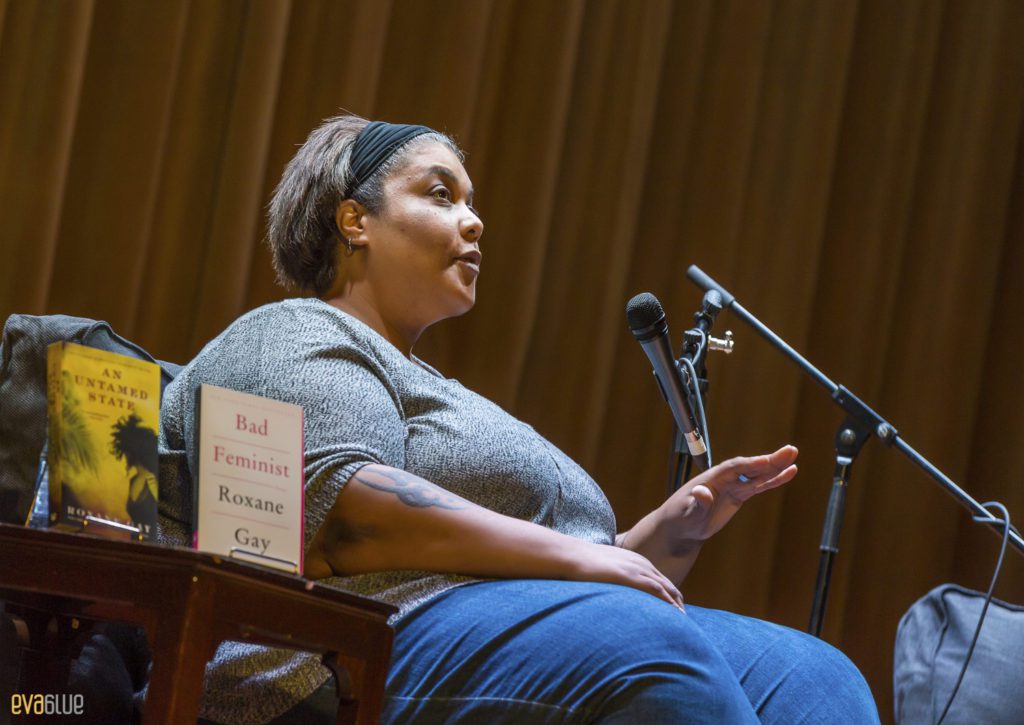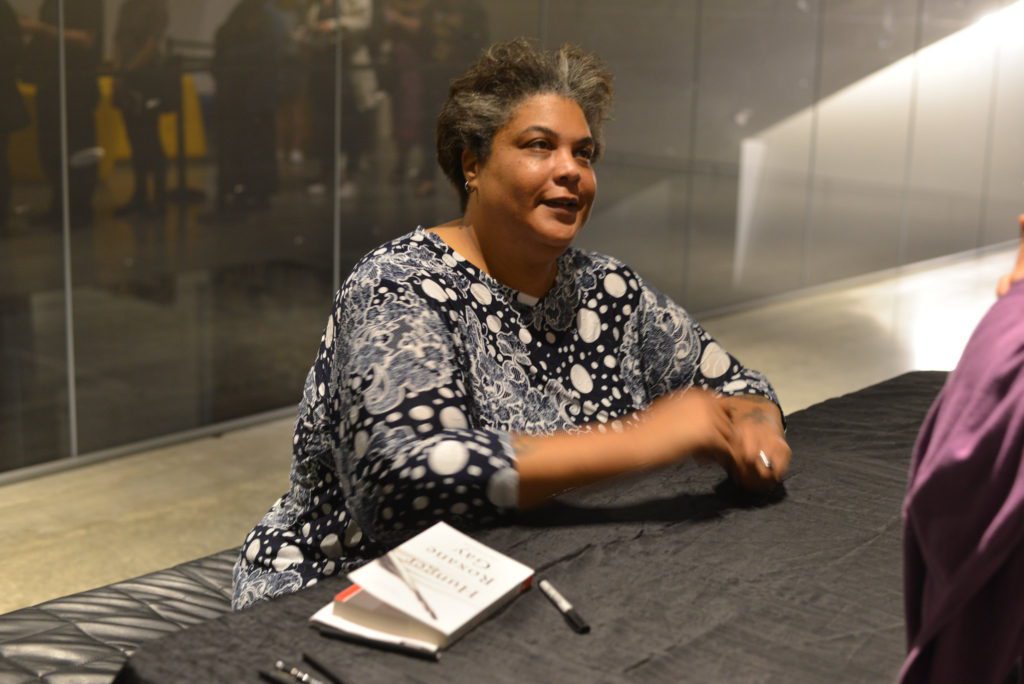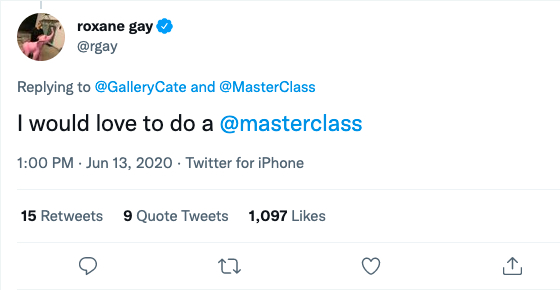Roxane Gay’s Top 13 Writing Tips
You may know her from her essays in the New York Times and Salon, her memoir Hunger, or her countless other books and publications.
Roxane Gay is a social commentator, author, and professor who has developed a reputation for being candid, vulnerable, and courageous. She recently shared her top tips in a MasterClass on writing for social change.
If you haven’t yet spent the $180/year for a MasterClass subscription, you can find Gay’s top 13 writing tips below. (All quotes are from her MasterClass.)
1. Don’t let anyone pigeonhole your writing
There’s a common writing myth that you need to choose one or two topics and only write about those topics. People say that if you stay in your lane, you’ll teach your readers what to expect with your writing and you’ll (maybe) become popular in that niche topic.
Gay disagrees. She says, “I love learning new genres, but the reality is that storytelling is storytelling. And there are different rules for every genre, but what makes a good story is pretty much the same.”
Roxane Gay has leveraged her storytelling ability to write short stories, nonfiction, novels, and graphic novels, and she’s even working on a screenplay. To her, the medium matters less than the message. She tries to select the right medium to tell each specific story.
2. Choose who you want to become on the page
Gay says she’s always been shy and quiet, but that doesn’t mean she needs to observe that same tone in her writing.
On the page, she has the freedom to be whoever she wants to be. She’s able to amplify her voice and boldly speak the truth to those who need to hear it.
3. Contribute to the political climate
“Writing is a way of contributing to the political climate and saying something meaningful,” says Gay.
She says that when she writes about progressive ideas, she gets to make those ideas seem more feasible. She’s able to remove the mental barriers by helping others imagine a world that’s better tomorrow than it is today.
4. Use writing to make others care
Gay uses current events as motivation to inspire her work. If she hears about a topic that she thinks others should know about, she writes about it.
Bring your perspective to the page to drive discussion and demand change.
“There are so many issues I didn’t think I cared about until I read about them,” says Gay. “And I’m grateful to writing for doing that.”
She encourages other writers to narrate the world they see around them and help others understand it. Bring your perspective to the page to drive discussion and demand change.
5. Decide what you want to accomplish
As a writer, it’s easy to get distracted and lose sight of the message you’re trying to get across.
Gay says that it’s imperative to consider the goals of any piece: “Always think about what your purpose is. What do you want to accomplish and what do you want to leave the reader with?”
She says that when you’re thinking about the WHY of the story you’re writing, the answer must be better than, “I just want people to hear this story.” That shallow answer indicates you need to dive deeper into why that issue is so important to you and why you’re the best person to write about it.
6. Be selective about what to include in your story
I once received the writing advice, “When you’re writing, you will want to say one hundred things, but you need to say just one. Don’t try to say too much in one article.”
That advice still guides me today, and Gay agrees that prioritization is key for identifying the type of information you should include in your stories.
“Sometimes, when you start to think about what you want to write, you come up with 10 or 15 ideas and you think that they all have to go in one piece cause this is it, this is your moment! But no, they don’t have to go all in one piece,” says Gay. “You have to be able to decide. You have to be able to edit yourself and edit those ideas down into one or two ideas that you can examine in depth, because depth and breadth matter, and that’s how you really create substance and meaning in your work.”
7. Focus on propulsion
As someone who writes everything from short stories to novels, Gay says the length of a piece doesn’t matter anywhere near as much as its speed: How does your story feel to readers?
“When I’m writing a personal essay, I’m not worried about length,” says Gay. “I’m worried about what it feels like to read it. Does it feel boring? Does it feel slow? And so, I want an essay — no matter the length — to move along at a steady pace. I really care about propulsion.”
Regardless of the type of story you’re writing, your goal is to make readers lose track of time. Envelop them in the world of your story — fiction or nonfiction. Transport them to another body, another mind, another location.
8. Creatively multitask
Every writer has different advice for how to brainstorm ideas and defeat writer’s block. Gay’s tip is simple: have multiple creative projects going at the same time.
If she feels blocked on one project, she switches to another one. Not in the headspace to work on her graphic novel that day? That’s okay, she just works on the short story instead.
Gay’s experience indicates that creative multitasking can lead to more productive time and fewer “bad writing days.”
9. Win fairly
Gay writes about a lot of complex, nuanced topics: equality, obesity, feminism, sexuality, human rights, etc. Those are emotionally charged topics, so it’s tempting to paint one side or another as “bad” and unfairly represent their opinions.
Because those topics are so complex, Gay tries to acknowledge the other side’s best arguments even as she rips them down. “I want to win fairly with an argument,” says Gay. “I don’t want to just present an argument in an extremely biased way and not acknowledge another point of view because that’s cheating and then the victory is nowhere near as satisfying.”
10. Show your work
Another aspect of writing about complex topics is helping readers follow the logic that led to your perspective. It’s not enough to just state what you believe — you must show WHY you believe it.
“I’m trying to answer questions for myself,” says Gay. “I don’t have the answers, so I’m showing the reader my math, like my process of getting to the conclusion that I make by the end of the essay.”
There’s a difference between confidence and assuredness. Confidence states a point boldly, whereas assuredness is completely free of doubt. Write with confidence but not assuredness. There’s always another way to view something.
11. Set the right type of goals
Goals are helpful, but it’s tempting to set the wrong ones. Rather than setting goals that depend on outside forces (landing a book or movie deal, selling a million copies, etc.), Gay tries to set goals in terms of what skills she wants to build and what topics she wants to learn.
By restricting her goals in this way, she remains focused on what’s truly within her control. This helps her avoid distraction and disappointment. If she doesn’t accomplish a goal, it’s on her — not anyone else.
12. Ask for what you want
Gay had always wanted to lead a MasterClass, so last year she decided to express that wish to the rest of the world via Twitter.
Sure enough, MasterClass reached out to her, and she got the chance to fulfill her dream. Gay encourages all writers to make their desires known. Just ask — you never know what will happen.
13. Don’t dim your light for others
Others may be intimidated by your confidence, work ethic, ambition, and courage. But that’s not your fault. It’s not your job to make others feel comfortable.
“People are always gonna try to tell you to dim your light to make them feel brighter, and I just don’t want to do that,” says Gay. “I refuse to do that.”
Don’t become a housecat just because others are scared of the tiger inside you.
Others may be intimidated by your confidence, work ethic, ambition, and courage. But that’s not your fault. It’s not your job to make others feel comfortable.
If you enjoyed this article, please support Roxane Gay by picking up one of her many books.
Happy writing!






